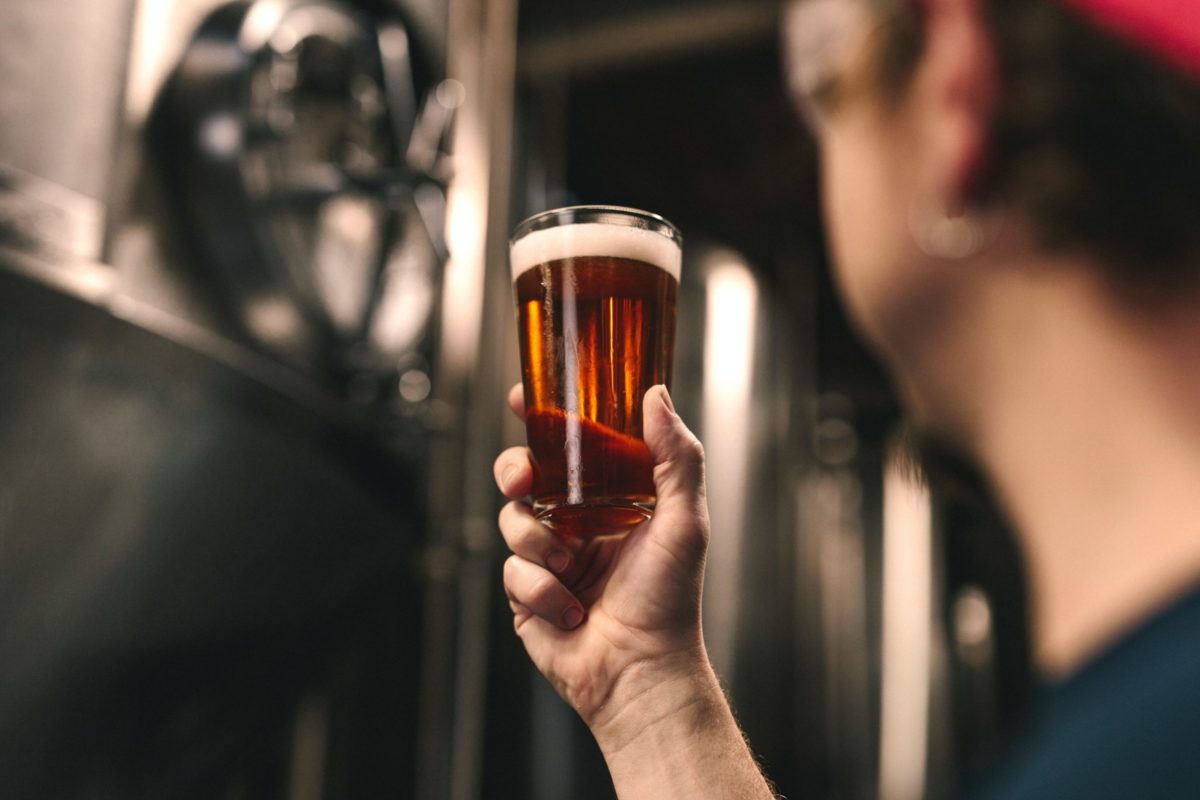When drinking alcohol is so common in society, it can be hard to tell the difference between someone who likes to have a few drinks now and then and someone with a real problem.
It’s important to know what the recommended guidelines are, in order to keep your drinking habits as healthy as possible.
What are units?

Introduced in 1987 to help people keep track of their drinking, units are a simple way of expressing the amount of pure alcohol in one drink. The number of units in a drink is based on the size of the drink, as well as its alcohol strength.
We know we should watch how much we drink, but with so many different sized drinks, glasses, cans, and bottles, it can be difficult to know just how much a unit of alcohol is and how many you’re drinking.
The NHS has created a quick guide to working out how many units there are in your favourite pint of beer or glass of wine.
One unit equals 10ml or 8g of pure alcohol, which is around the amount of alcohol the average adult can process in an hour.
For example, a pint of strong lager contains 3 units of alcohol, whereas the same volume of low-strength lager has just over 2 units.
Knowing your units will help you stay in control of your drinking.
So what’s the advice around alcohol?
We say to drink a maximum of 14 units a week. That works out around the following amounts:
- Spirits – alcohol by volume (ABV) 37.5%: 14 single measures a week
- Average-strength lager – ABV 4%: seven pints a week
- Average-strength wine – ABV 12%: nine 125ml glasses, seven 175ml glasses or four 250ml glasses.
We also recommend you spread it evenly over the week, and not binge drink it all in one go.
It takes roughly one hour per unit to remove the alcohol from your system (although this differs for people) and women absorb alcohol faster than men and get rid of it more slowly.
Remember, the following morning you’re still likely to have alcohol in your system as well, so you shouldn’t get behind a wheel. So if you’d had five pints one night, you shouldn’t drive until at least ten hours later.
Alcohol addiction

Alcohol addiction, also known as alcoholism, is a disease that affects people of all walks of life. The severity of the disease, how often someone drinks, and the alcohol they consume varies from person to person. Some people drink heavily all day, while others binge drink and then stay sober for a while.
It has no single cause; psychological, genetic, and behavioural factors can all contribute to having the disease, and factors like genetics, sex, race, or socioeconomic group may predispose someone to alcohol addiction.
Addiction can show itself in a variety of ways, depending on the severity of the disease and how often someone drinks. But regardless of how the addiction looks, we typically say someone has an alcohol addiction if they heavily rely on drinking and can’t stay sober for an extended period of time.
Some symptoms of alcohol addiction are:
- increased quantity or frequency of use of alcohol
- high tolerance for alcohol, or lack of “hangover” symptoms
- drinking at inappropriate times, such as first thing in the morning, or in places like church or work
- wanting to be where alcohol is present and avoiding situations where there is none
- changes in friendships; someone with an alcohol addiction may choose friends who also drink heavily
- avoiding contact with loved ones
- hiding alcohol, or hiding while drinking
- dependence on alcohol to function in everyday life
- increased lethargy, depression, or other emotional issues
- legal or professional problems such as an arrest or loss of a job
As an addiction tends to get worse over time, it’s important to look for early warning signs. If identified and treated early, someone with an alcohol addiction may be able to avoid major consequences of the disease.
It’s important to note that alcoholism is a real disease, therefore it has serious effects on the body and your wellbeing.
Although alcohol initially makes you feel more relaxed, the more you drink can lead to inhibition and it distorts your judgement. It can cause increased anxiety, depression and aggression, which can lead to coordination issues and blackouts. This in turn results in confusion, stupor and even coma. At this point it can affect your heart rate and breathing.
There is also a link between alcohol consumption, some cancers, dementia and Liver disease, not to mention being extremely high in calories.
